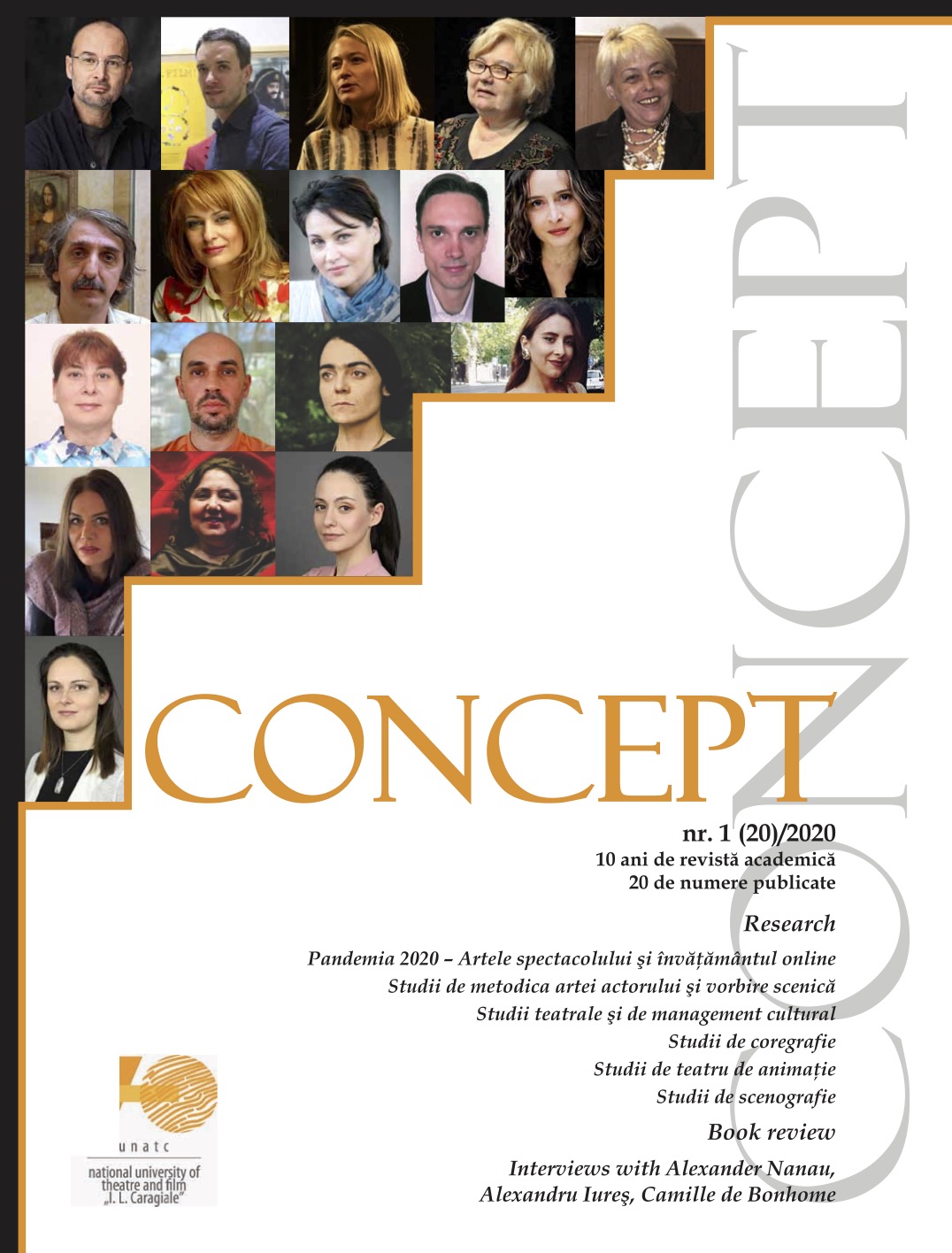Hibridizarea învățământului – o soluție de viitor?
Hybridization of Education – A Solution for the Future?
A comparative research Offline versus Online
Author(s): Mihaela BeţiuSubject(s): Theatre, Dance, Performing Arts, Fine Arts / Performing Arts
Published by: Universitatea de Teatru si Film »I.L. Caragiale« (UNATC)
Keywords: online teaching; offline teaching; advantages; disadvantages; substitute methods; direct methods; criteria of judgmenet of differences; research; contact-based teaching; hybrid teaching;
Summary/Abstract: In the fields of Theatre Performing Arts and Film and Media only some of the specializations are theoretical, most of them being eminently practical, based on active-participatory methods and self-experimentation. Research specific to the actor’s art, choreography, (theatre, film and TV) directing, scenography or the art of puppetry has at its center the human body and, in the case of online education, the emphasis is formally shifted to its image. In other words, the challenge is huge and the long-term impact of this type of education cannot be yet quantified. The article „Hybridization of Education – A Solution for the Future?” is a research related to the advantages and disadvantages of offline education versus online education from the point of view of the acting teacher and her students, ageneration whose training began online in the context of the 2020 pandemic, later also benefiting from face-to-face classes. Following the analysis of the Top 5 advantages and disadvantages of both types of education, the evaluation criteria used were evident, highlighting: the criterion of social affiliation, the criterion of physical performance, the criterion of health effects, the financial criterion, the technical performance criterion, the time management criterion, that of accessibility, comfort, direct experience, cognitive development, emotional development, artistic performance, the criterion of general learning ability, that of creativity development, the criterion of professionalization. The analysis of the results leads to the conclusion that, despite a number of benefits of online learning, the benefits of direct learning are still major. Online education is and remains a replacement for the direct way of communication, a substitute with a second choice function, with multiple disadvantages related to the quality of the educational process as a whole. In the future, offline-online hybridization will be chosen, but this should only be done for courses with content that can be transmitted and received in this manner, following a carefully conducted research. Education and consequently the ways in which it is achieved is responsible for shaping the future of humanity.
Journal: Concept
- Issue Year: 20/2020
- Issue No: 1
- Page Range: 22-37
- Page Count: 16
- Language: Romanian

